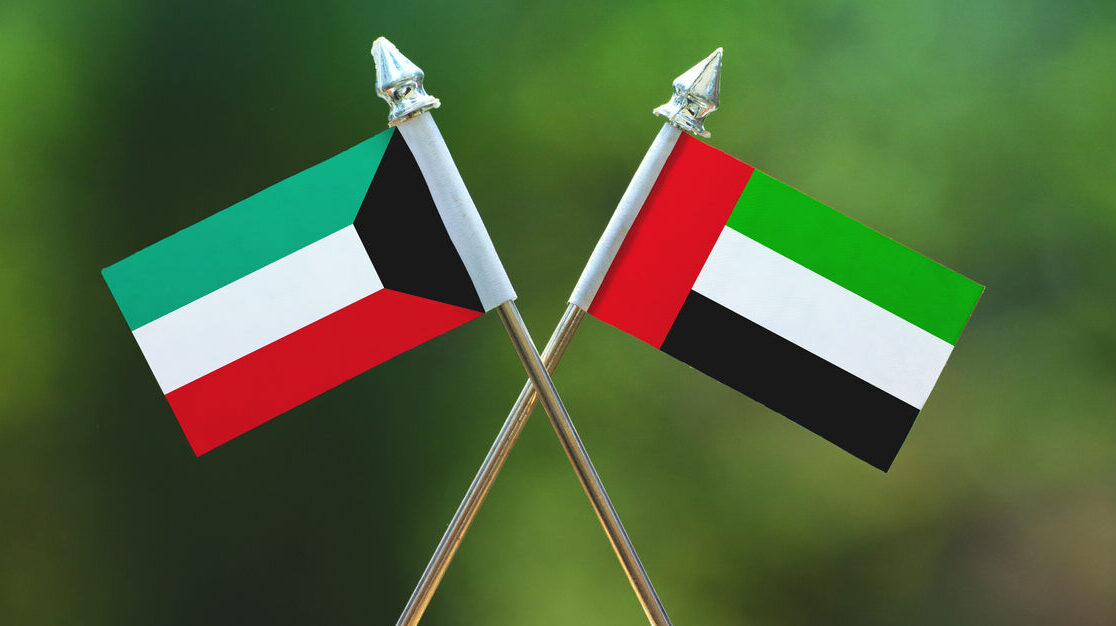UAE and Kuwait Strengthen Economic Ties, Exemplifying Arab Integration
The United Arab Emirates (UAE) and Kuwait have significantly deepened their economic relationship over the past decade, showcasing a model of Arab integration. According to preliminary data from the UAE’s Federal Competitiveness and Statistics Centre (FCSC), non-oil foreign trade between the two nations has surged by 87%, reaching AED 43 billion by the end of 2022, up from AED 23.3 billion in 2013.
This robust growth underscores the strengthening economic partnership between the UAE and Kuwait. The total trade volume between the two countries from 2013 to 2022 amounted to AED 316.2 billion. Re-exports constituted 53% of this trade, valued at over AED 168 billion, while non-oil exports represented 27%, worth more than AED 85 billion. Imports accounted for 20%, totaling AED 62.8 billion.
In 2022 alone, non-oil trade between the UAE and Kuwait grew by 13%, an increase of AED 5 billion, reaching AED 43.5 billion compared to AED 38.5 billion in 2021. This growth reflects the dynamic and evolving economic relationship between the two nations.
The trade composition between the UAE and Kuwait is diverse. In 2022, mineral oils topped the list of commodities imported from Kuwait to the UAE, valued at over AED 6 billion. Conversely, raw gold was the leading export from the UAE to Kuwait, worth AED 3.3 billion, followed by jewelry at AED 3 billion. Communication equipment was the primary commodity re-exported from the UAE to Kuwait, valued at AED 3.52 billion, followed by medicines and treatment drugs at AED 1.7 billion, and data processing machines at AED 1.46 billion.
The UAE Ambassador to Kuwait, H.E. Dr. Matar Al Neyadi, has expressed optimism about the future of bilateral trade. He highlighted the attractiveness of the Kuwaiti market for Emirati businesses, noting that major UAE companies, such as Abu Dhabi Ports Group subsidiary “SAFEEN,” have established a presence in Kuwait. This move reflects the growing interest in participating in Kuwait’s infrastructure and development projects.
Ambassador Al Neyadi emphasized the strong relationship between the private sectors of both countries, attributing the significant growth in bilateral trade to these connections. He expressed pride in the current trade volume, which reached approximately AED 23.6 billion ($6.4 billion) in the first half of 2024.
To further facilitate trade, a Memorandum of Understanding (MoU) was signed between AD Ports Group and the Kuwait General Administration of Customs. This agreement aims to establish a new virtual trade corridor between the UAE and Kuwait, under the supervision of the Department of Economic Development – Abu Dhabi (ADDED). The virtual trade corridor is expected to simplify and expedite cross-border trade by providing customs authorities in both countries with pre-arrival information for international cargo movements, promoting pre-clearance of goods, and accelerating procedures for perishable shipments.
The MoU also aims to enhance safety and security by improving visibility for authorities over potential risks associated with goods moving between the two nations. This digital integration is anticipated to reduce inspection rates and simplify procedures for authorized entities, thereby promoting a more efficient and secure trade environment.
The strengthening of trade relations between the UAE and Kuwait is a testament to the broader trend of economic integration within the Arab world. By leveraging digital solutions and fostering private sector collaboration, both nations are setting a benchmark for regional cooperation and economic development.
DO follow gulf magazine on Instagram
for more information click here
Gulf magazine



